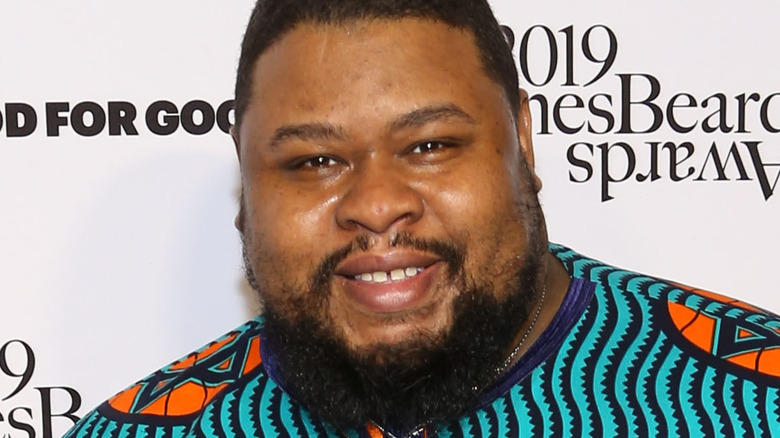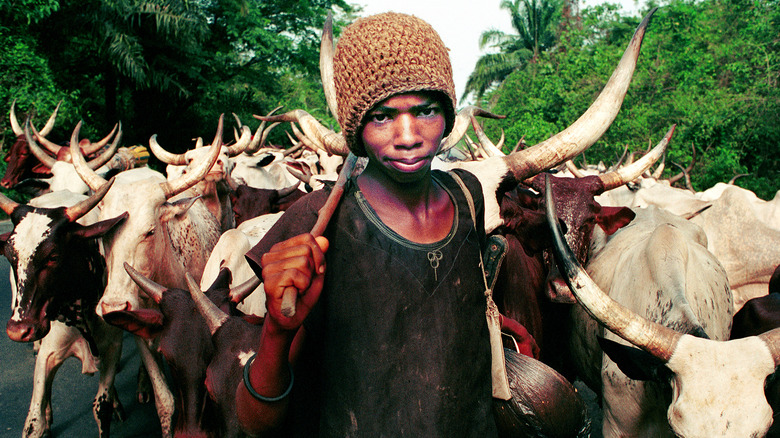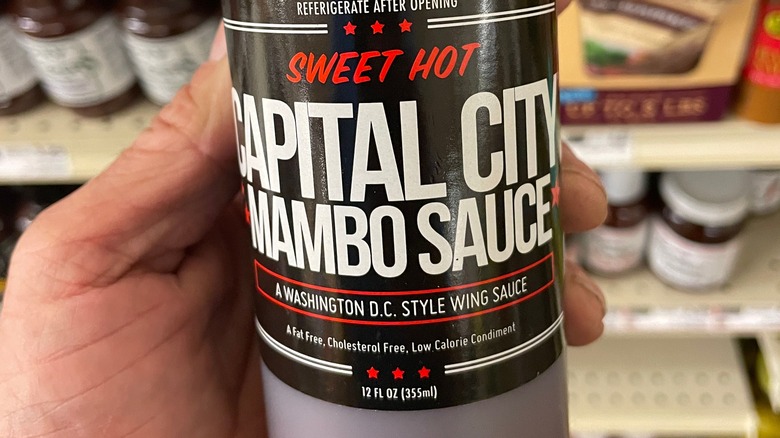Michael W. Twitty On The African Roots Of American Barbecue - Exclusive
Author and historian Michael W. Twitty centers his life's work on illuminating the forgotten or misremembered histories of traditional American foodways. His most recent book, "Koshersoul: The Faith and Food Journey of an African American Jew," traces the journeys of two distinct culinary traditions — the cuisines of the African Atlantic and the global Jewish diaspora — and finds the intersection points with his own identities as an African American Jew.
Born and raised around Washington, D.C., the birthplace of American barbecuing traditions, Twitty has spent decades researching the origins of barbecue, traveling to the African continent, and drawing his own conclusions on the often minimized role of African cooking traditions brought to the United States by enslaved people starting 400 years ago.
"The African tradition got pushed to the side in the narrative of American food writers," said Michael W. Twitty in an exclusive interview with Tasting Table. Our conversation delved deep into the varied roots of American barbecue in the African Atlantic and the echoes of those traditions still on display in the contemporary barbecue seen along the East Coast and elsewhere today.
The West African origins of the word 'barbecue'
It's commonly accepted that the word "barbecue" comes from European languages, an incomplete understanding of the word's etymology that, according to Michael W. Twitty, serves to erase Black influences on the tradition. While he doesn't deny the influences of European or Indigenous culture on American barbecue, the story is more complicated than that, he said.
"How many books have I been treated to where they say, 'Barbecue comes from the French, "from the head to the tail"'?" asked Twitty.
"There's 'barbacoa' [in Spanish], there's 'barbe á queue' [in French], then there's 'babake' in Hausa," he continued. "There are 50 million Hausa speakers. The Hausa are traders and cattlemen, and they range from Senegal all the way to Cameroon, Niger, and beyond. They had their own kingdom for quite some time. 'Babake' means to grill, to toast, to roast, to use wood up for a very long time, to cook some meat. What does that sound like?"
The African Atlantic influences American barbecue
Michael W. Twitty has made seven trips to West and Central Africa, visiting eight countries, and he's found evidence of barbecue in each one, often with stark similarities to their American counterparts.
"Go to Senegal, go to Nigeria, go to Ghana, go to Congo. It's right there," he said. "It's particularly important in places where there is a Muslim population, which is interesting. All of those countries in West and Central Africa have a definite barbecuing tradition. In Central Africa, where a third of our ancestors came from, you have the peri-peri tradition, which is marketed as South African or Portuguese, but no — it's Indigenous. It's peppers and palm oil and muamba, the sauce you make from them that you eat with everything."
"If you go to D.C., where I'm from," Twitty went on, "people talk about 'mambo sauce,' the savory sauce that goes with wings, barbecue, and other things from the D.C. area."
But the links between the traditions are often not so easy to connect. "Sometimes people forget why they say things and do things, and it's because we've been cut off [and] reconnected from our roots," he said.
Another common misconception, said Twitty, is that American barbecue originated among the Carib people. "But the fact is, there were no quadrupeds in the Caribbean that were barbecued for ten hours until the Spanish and the Africans showed up," he explained.
"What is the number one thing they love?" he continued. "Goat and chicken. Where do you find them things? Africa. It took basically under a decade for [these traditions to migrate over] after the transatlantic slave trade began."
For more on African diasporic culinary traditions, check out "Koshersoul: The Faith and Food Journey of an African American Jew."


